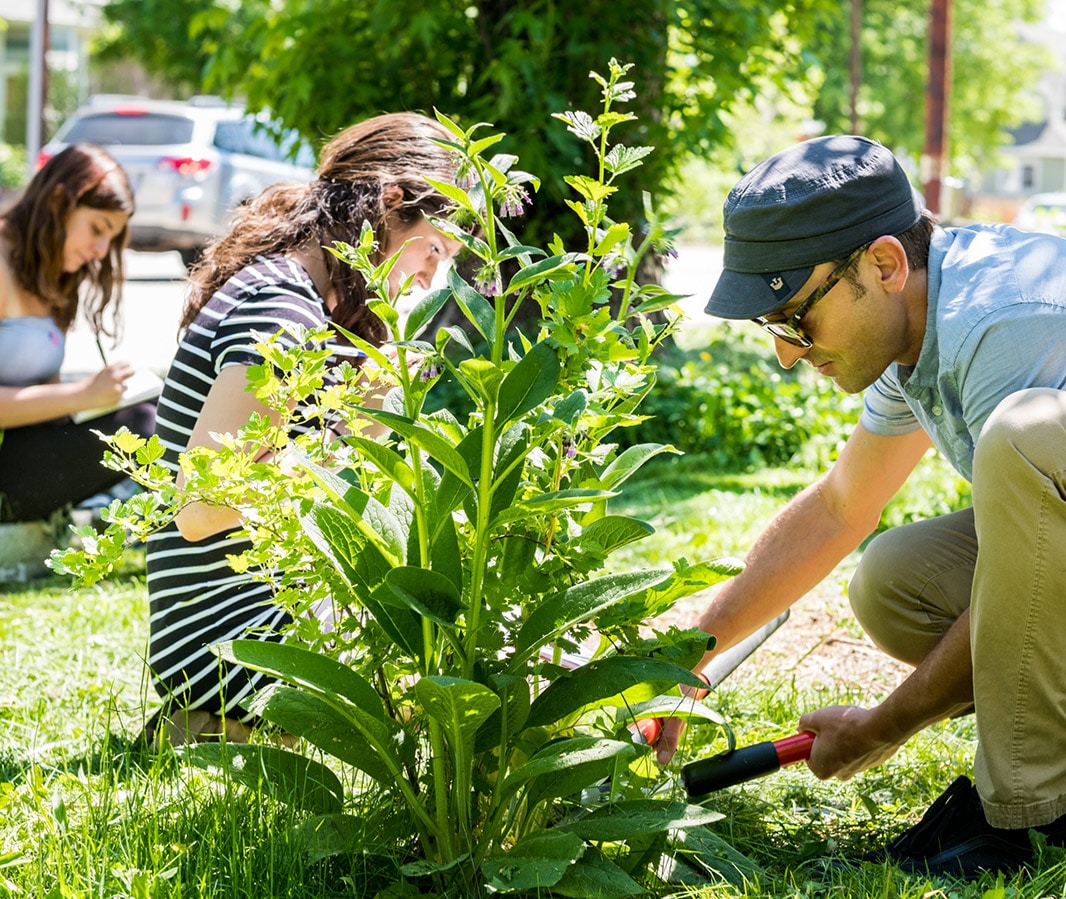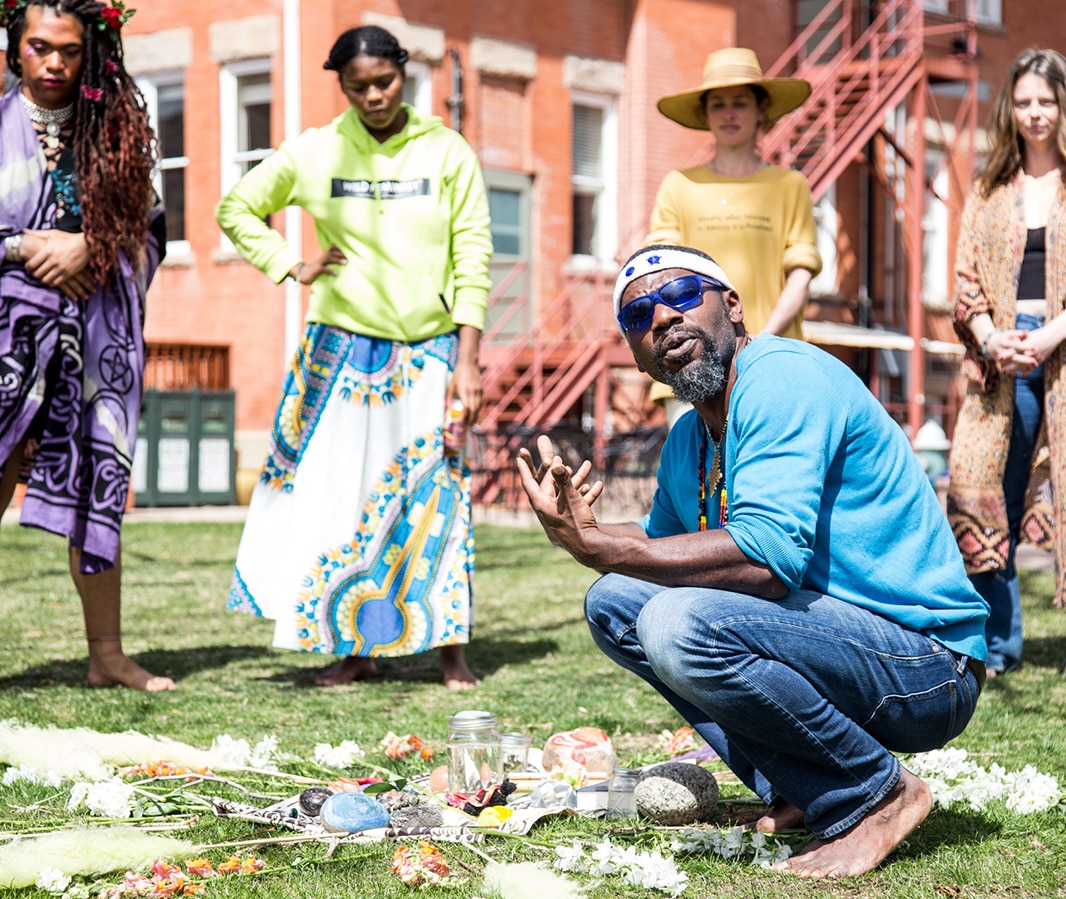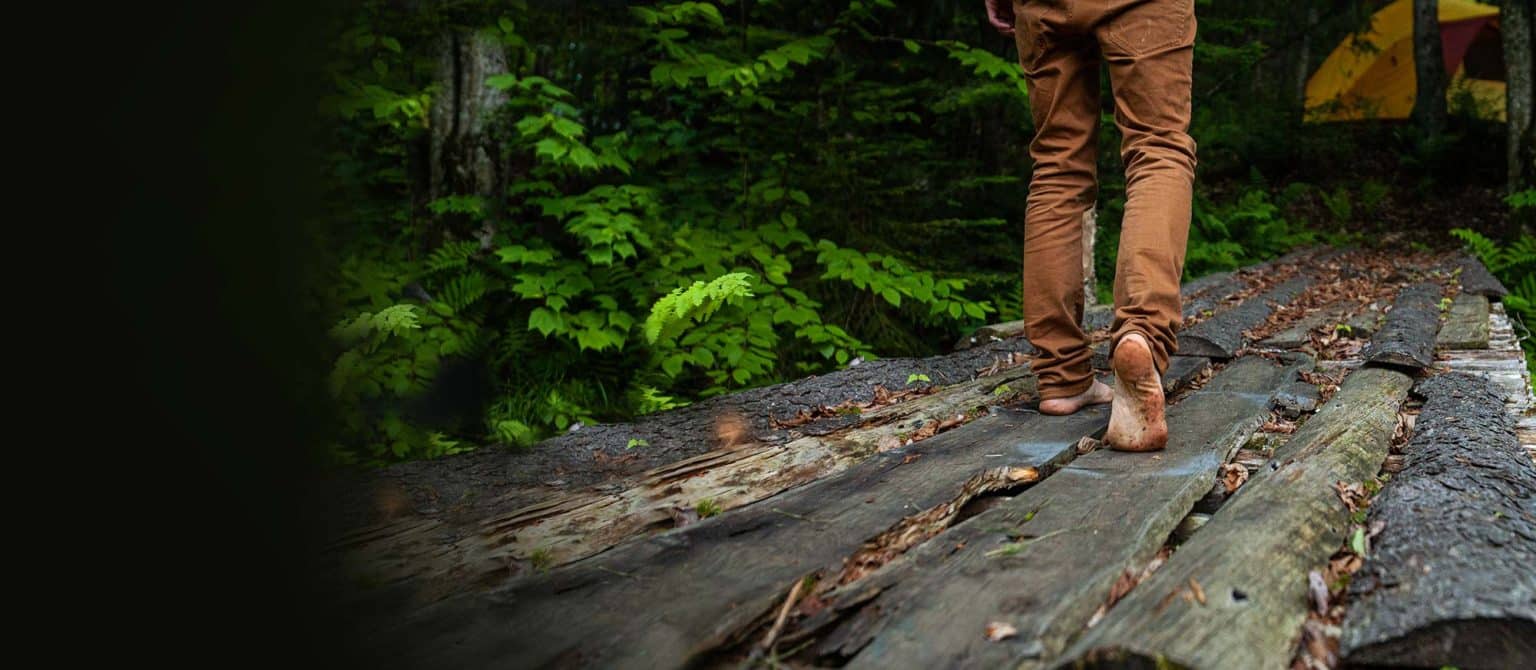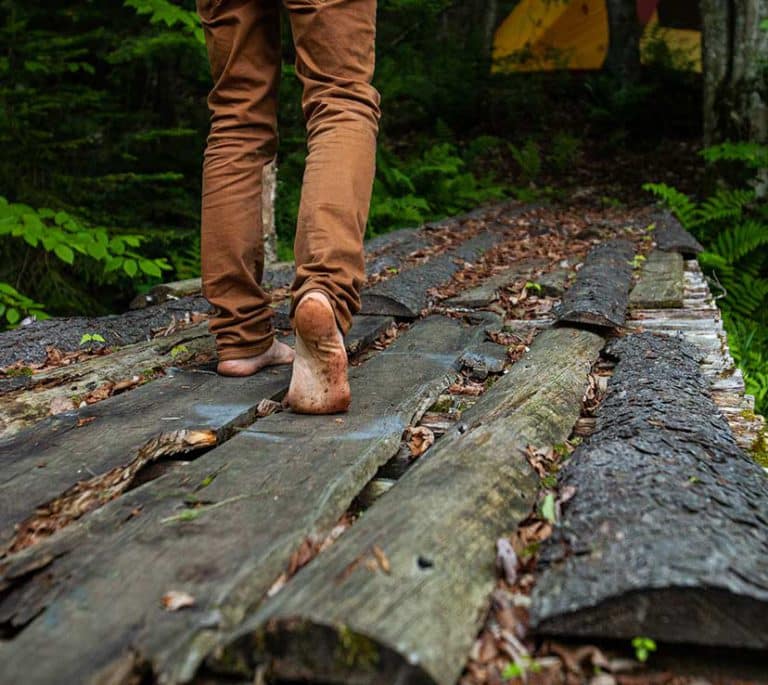Ecopsychology Degree
Master of Arts in Ecopsychology (Low-Residency)
Deepen your understanding of the human-nature relationship and its importance in re-balancing our world for personal, societal and planetary health.
Program Overview
Naropa’s Ecopsychology Degree is both highly experiential and academically rigorous. We prepare future ecopsychologists for a shifting environmental landscape where they’ll apply their training, skills, and unique talents to a broad array of employment directions.
This low-residency MFA program combines online courses and residential Intensives with a cohort model that builds a supportive community and long-lasting friendships. Over two years, you’ll engage in contemplative practices and meditation, deep immersion in the natural world, meaningful service-learning, and strong foundations in the field of ecopsychology, which blends transpersonal psychology with ecological principles.
In community with seasoned faculty and like-minded peers, you will learn to repair the bridge that connects humans to the natural world.
Contemplative Connection With Nature
Following Naropa’s mission of contemplative education, the Master of Arts in Ecopsychology matches theoretical study with meditative practice. In the ecopsychology graduate program, nature is the added element, creating the opportunity to know oneself through the natural world.
Global Access
The Master of Arts in Ecopsychology program seeks to expand contemplative education through its low-residency, online format. Because the ecological issues facing humanity exist on a global scale, we aim for a geographically diverse student body.
Careers Preparedness
Through the Transpersonal Service Learning course, graduate students will apply their knowledge of transpersonal ecopsychology through community fieldwork. Service-learning placements, at sites from bereavement centers to nonprofits, include teaching art and ecopsychology, assisting teen wilderness rites-of-passage courses, and providing natural disaster relief.
Quick Facts
- The Only Ecopsychology Graduate Program in the United States
- Online Format
- 4 Residential Intensives
- 38 Credit Hours
- 10 Immersive Days in Nature
- 2-year Degree
- Scholarship Opportunities
- Applications Open for August 2024
Program Format
The low-residency Master of Arts in Ecopsychology program is a two-year, 38-credit program that begins with a ten-day residential intensive at the Drala Mountain Center. It then continues with students learning from their own home online during the fall and spring semesters.
Students also attend a five-day intensive course in Boulder each January and begin the second year with a two-week summer intensive that includes a rites of passage wilderness camping trip.
Coursework integrates theory, experiential learning, and contemplative practice in the study of ecopsychology, including ecoresilience strategies. This is not a clinical program and does not lead to licensure. Students complete both written and service-learning projects.

Course Spotlight
Ecopsychology Applied in Context
This online course deepens understanding of the field of ecopsychology by seating its concepts in cultural and applied contexts. Application of the ecopsychological principles for addressing contemporary ecological problems and ethics are examined, along with options for effective and compassionate action.
Degree
Requirements
Ecopsychology integrates psychology with ecology in the study of human/nature relationships. At Naropa University, contemplative practice and transpersonal psychology provide a foundation for this integration. The result is a unique contemplative and transpersonal orientation to the field of ecopsychology.
Our Ecopsychology Degree requires a total of 38 credits split and takes two years to complete. The required courses are as follows:
Low Residency Ecopsychology Degree Requirements
First year, fall (10 credits)
- PSYE-600 Initiatory Contemplative Ecopsychology Intensive(4)
- PSYE-630E Transpersonal Psychology(3)
- PSYE-640E Ecopsychology(3)
First year, spring (8 credits)
- PSYE-650 Winter Contemplative Ecopsychology Intensive(2)
- PSYE-680E Ecology: Concepts & Applications for Ecopsychology(3)
- PSYE-690E Ecopsychology Applied in Context(3)
First year, summer (6 credits)
- PSYE-700 Ecopsychology Training Intensive(2)
- PSYE-750 Psychology of Wilderness Experience Intensive(4)
Second year, fall (6 credits)
- PSYE-800E Transpersonal Service Learning(3)
- PSYE-850E Master’s Project I(3)
Second year, spring (8 credits)
- PSYE-800E Transpersonal Service Learning(3)
- PSYE-850E Master’s Project I(3)
Why Choose Naropa?
Colorado Intensives
Your in-person intensives will take you to our Boulder Campus and the Drala Mountain Center. Engage in contemplative practice and develop a deeper understanding of the human/nature relationship in a nature-based setting.
Emerging Scholarship
Ecopsychology is an emerging field that is developing in recognition that human health, identity, and sanity are intimately linked to the health of the earth. Naropa University offers the only Graduate Ecopsychology Degree in the US.
Sustainability
Naropa’s commitment to sustainability is a core part of our mission. We promote the individual and collective integration of ecological, economic, and spiritual well-being through institutional and community practices, with our curriculum and through all endeavors we pursue.

How this Program Prepares You
Transpersonal Service Learning
Transpersonal Service Learning is a method of teaching where students learn and develop through active participation in organized service experiences. These experiences take place in their communities and are integrated into the academic curriculum of the Ecopsychology MA program. They are designed to meet the needs of a community, provide structured time for reflection and help foster civic responsibility.
Multidisciplinary & Multicultural Approach
Transpersonal ecopsychologists recognize the essential role of multidisciplinary studies. Practitioners may explore religion, anthropology, ecology, physics, and other fields for a fuller understanding of the human being. Similarly, transpersonal psychology is, at its roots, strongly intercultural. The Ecopsychology program values diversity in its student body and faculty and includes explorations of diversity throughout its courses.
Personal enrichment and transpersonal growth
Students draw upon the opportunities offered by the Ecopsychology program as a vehicle for psychospiritual growth and transformation. The development of community among program students and faculty, the intellectual challenge of the program, and the experiential engagement with contemplative and transpersonal practices all foster transformation.
What You'll Learn
Deep Relationship with Nature
Take your love for nature a step further; learn how nature can heal.
Understanding of the Human/Nature Relationship
Help restore the powerful link between humans and the natural world.
Valuable Nature-Based Skills
Gain wilderness skills you will use for a lifetime.
Self-Knowledge
Learn about yourself through immersive wilderness experiences.
Deep Relationship with Nature
Create opportunities for healing where ecology meets psychology.
Career Opportunities with an Ecopsychology Degree
Our graduates apply the MA in Ecopsychology in a variety of career areas, including environmental education and advocacy, education, group facilitation and training, wilderness guiding, workshop and retreat leadership, social services, health care and healing, organizational development, coaching, and community development.
- Environmental Compliance Inspector: ensure projects and organizations comply with environmental laws.
- Environmental Science Teacher: teach post-secondary students how science affects the environment.
- Tour Guides and Escorts: lead others through nature-based activities.
- Psychology Teachers: teach post-secondary students about the connection between mind, self, and nature.
- Healthcare Social Worker: provide psychosocial support to community members facing healthcare-related problems.
FAQS about the
Low-Residency Ecopsychology Degre
What can you do with an Ecopsychology Degree?
Career opportunities for our graduates are many and varied. MA in Ecopsychology graduates have gone on to careers as naturopathic healers, green business consultants, healing journey guides, and wellness consultants. You can visit the Naropa Healing Directory to learn about the work that our alumnx are doing in the field. Naropa graduates are bringing their knowledge of environmental psychology to diverse professions in locations that span the globe.
Does this program include Clinical internship hours toward becoming a licensed therapist?
No, this program is not a path toward clinical licensing as a counselor. However, this program includes a service-learning component where students engage with Ecopsychology in their community. If you are interested in becoming a clinical counselor, take a look at our Clinical Mental Health Counseling Degree.
How long does it take to complete the Ecopsychology Degree?
How does the Low-Residency Work?
What sets Naropa’s Ecopsychology Degree apart from other programs?
Naropa is the only university to offer a graduate Ecopsychology program. Ours is the only university where you can acquire professional training and rigorous academic knowledge at once with official accreditation. Besides these institutional advantages, Naropa’s Ecopsychology Program is based on the principles of contemplative education, sustainability, regeneration and balance.
Learn More About the Program

Connect
with your counselor
Olivia Phipps
Graduate Admissions Counselor
Ready to Apply?
Admission Requirements
Naropa University’s admission process follows our contemplative education principles. We value academic excellence as well as the commitment to introspective work. Admissions are rolling and applications will be accepted until the program is full.
Learn more about admission requirements, current deadlines, and the application process for the Ecopsychology Degree.
Graduate Students
To apply to the Ecopsychology program, students must submit the following documentation as part of their online application:
- Transcript of all undergraduate coursework
- Statement of Interest
- Resume/CV
- Two letters of interest
Applicants will also have the opportunity to apply for financial aid when submitting their initial application. Once all documentation has been provided, applicants who meet the requirement criteria will move on to the interview process, which includes individual and group interviews.
We recommend that applicants read all requirements carefully before starting their application. Take a look at our requirements page.
International Students
International students are welcome to apply! Students with undergraduate degrees from foreign universities must provide additional documentation about their academic record as part of their application.
See the additional admission requirements for international students.
Costs and Financial Aid
Graduate students at Naropa are eligible for several financial assistance programs. Over 75% of our graduate students currently receive financial aid to support their studies.
Our costs & financial aid page covers all pertinent information regarding tuition, plus indirect costs of attending Naropa. We also have useful information about financial assistance options students may be eligible for.
Graduate Scholarship Opportunities
Affording university can be challenging, so Naropa offers several scholarships and grants to make quality education affordable to as many students as possible. Some scholarships reward academic performance, some foster diversity and inclusion, and some aim to reward community and social engagement. Transfer students and international applicants can also benefit from Naropa’s scholarships.






